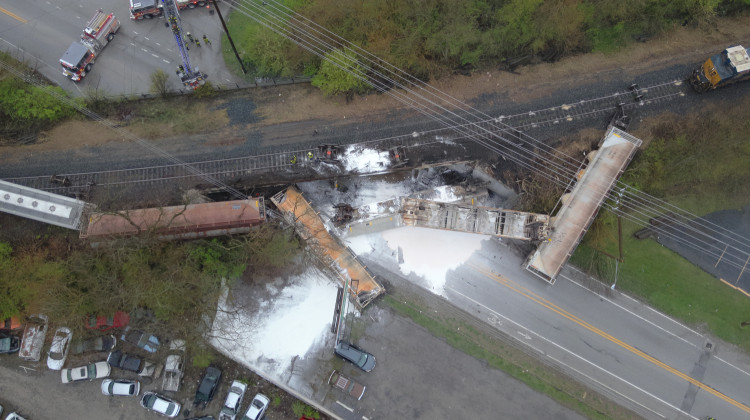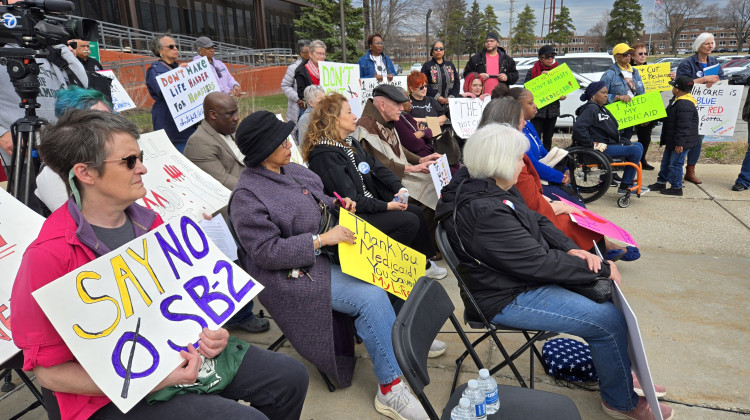
Family on Independence Day admires the fireworks with the American flag in their hands. 4th of July
Photo/Getty ImagesWith the 4th of July holiday just around the corner, it is important to remember the importance of fireworks safety. Many people do not understand how to safely handle fireworks. There is also a large population that does not consider how triggering fireworks can be for those suffering from post-traumatic stress disorder (PTSD).
According to the Consumer Product Safety Commission (CPSC), an average of 11,000 people are treated for fireworks-related injuries each year. Nearly 3,000 are children under the age of 16. An alarming 74% of injuries happen during the week before and after Independence Day.
The most common fireworks-related injuries are burns and hand and arm injuries. In recent years, there has also been an increase in the number of head injuries caused by fireworks.
Many firefighters are pleading with the public to celebrate the 4th of July safely. Private Jarrett Hamilton with the Indianapolis Fire Department (IFD) said calls surge during the first week of July every year.
“The number of calls ramp up significantly this time of year,” Hamilton said.
Additionally, Hamilton provided some tips to remain safe from firework-related injuries.
“Always keep a big bucket of water nearby to neutralize fireworks,” Hamilton said. “It is also important to treat defective fireworks the same as live fireworks. Never let your kids out of your sight. Supervision and common sense is the key to staying safe this Independence Day.”
Fireworks can also have a psychological impact on war veterans and people who suffer from PTSD. They may be triggered by the deafening rackets and kaleidoscopic lights of fireworks.
4th of July fireworks safety and trauma
The sound of fireworks can be reminiscent of gunfire, and the colorful lights can be reminiscent of explosions. This can cause individuals with PTSD to experience flashbacks, anxiety and panic attacks. This is especially true for war veterans who have experienced combat.
In some cases, the effects of fireworks on people with PTSD can be so severe that they require hospitalization.
Many veterans display lawn signs asking that neighbors please be considerate of loud, flashy fireworks as an attempt to inform the community of how traumatic the holiday’s festivities can become.
Inishia Coleman, U.S. Navy petty officer second class, explained why this time of year can be very difficult for veterans.
“Even though it is a holiday, veterans can still be triggered by fireworks,” Coleman said. “People never know what veterans have seen, done or heard. Loud noises and bright lights can take veterans to a dark place they’d rather not revisit. Please, be mindful and respectful this Independence Day.”
Veterans are not the only individuals negatively affected by the sounds and displays of fireworks. Victims and family members affected by gun violence may also find fireworks unsettling.
Former President of the Crown Hill Neighborhood Association Carleen Carter expressed her concern with firework season.
“A lot of our neighbors are familiar with the loud bangs and flashes tied to fireworks but not for good reasons,” Carter said. “Lives have been lost, and sometimes those firework displays can be too much for those affected by gun violence.”
More safety tips
For those attending a fireworks showcase this 4th of July, the Indianapolis Fire Department recommends packing ear protection, such as earplugs or noise-canceling earbuds. The United States Department of Veteran Affairs (VA) recommends that partygoers consider staying away from the fireworks themselves and watching the production from a reasonable distance to avoid traumatic responses.
Additionally, the VA suggests that anyone experiencing a traumatic flashback or anxiety attack find shelter. Controlled breathing is also recommended when combating a panic attack.
If someone is injured by fireworks, contact emergency services immediately.
Contact multi-media staff writer Noral Parham III at (317)-762-7846 or e-mail at noralp@indyrecorder.com. Follow him on Twitter @NoralParham.
 DONATE
DONATE






 Support WFYI. We can't do it without you.
Support WFYI. We can't do it without you.